Artificial grass, also known as synthetic turf or fake grass, has gained popularity as an alternative to natural grass in various settings. With its low maintenance requirements, aesthetic appeal, and versatility, artificial grass offers a range of benefits for homeowners, businesses, and sports facilities. In this article, we will explore the numerous advantages of artificial grass while also delving into important related topics such as choosing the right artificial grass, its environmental impact, its applications in sports and recreation, and maintenance tips for long-term enjoyment.
Choosing The Right Artificial Grass:
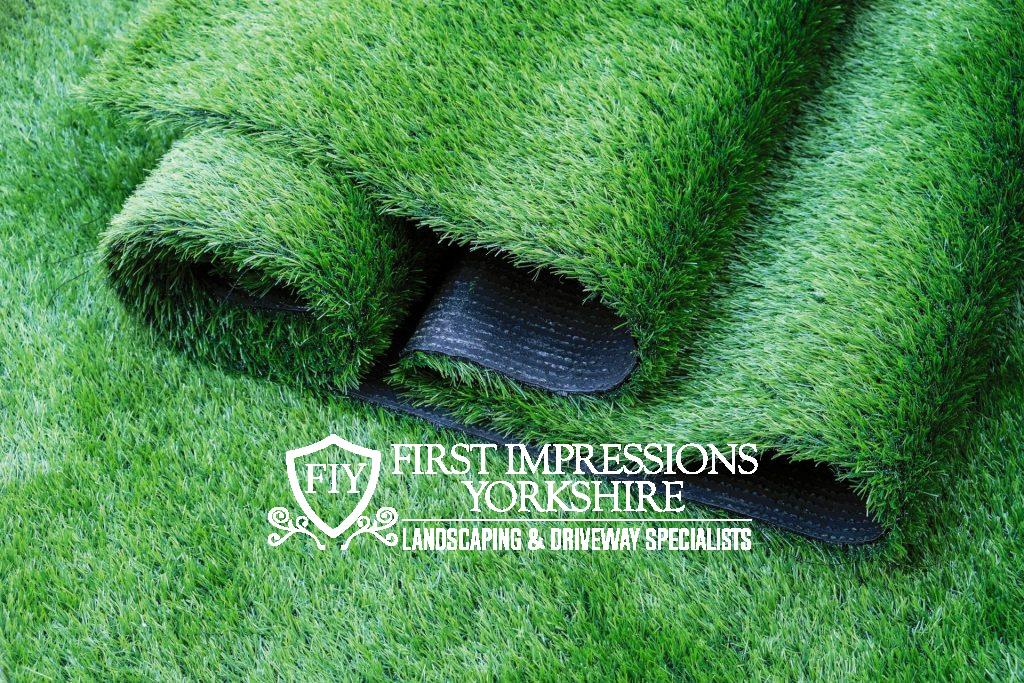
Selecting the perfect artificial grass for your specific needs is crucial. Factors such as pile height, density, colour, and material composition play a role in determining the quality and suitability of artificial grass. High-density artificial grass varieties, such as nylon or polypropylene, offer exceptional durability, making them suitable for heavy foot traffic areas and pet-friendly spaces.
Additionally, certain artificial grass types mimic the look and feel of natural grass, providing a realistic and visually appealing landscape. All-weather performance varieties are also available, ensuring excellent performance in rainy or humid climates.
Take a look at this blog post where we discuss how to choose the right type of artificial grass.
Environmental Impact of Artificial Grass:
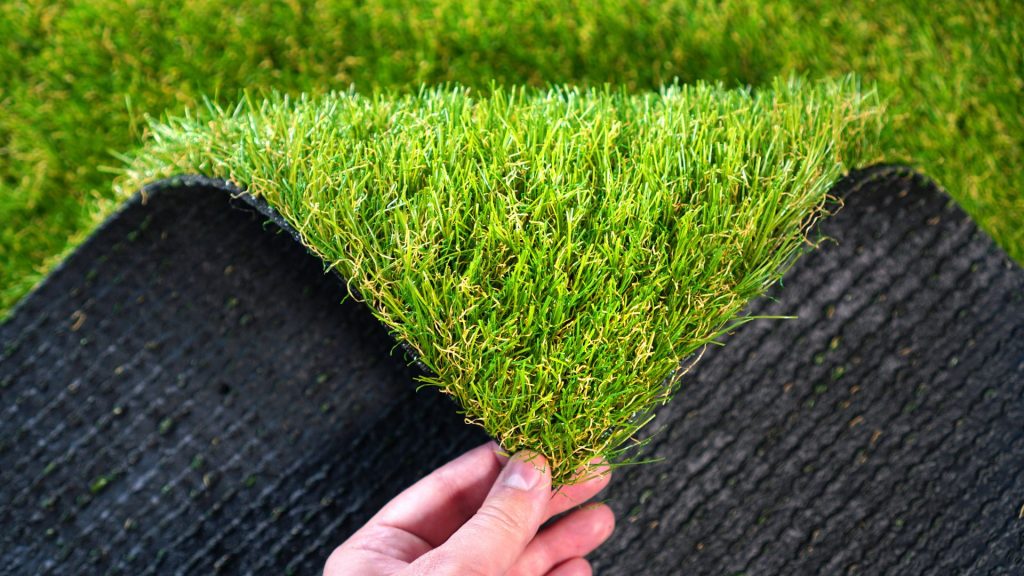
Artificial grass offers several environmental benefits compared to natural grass. By installing artificial grass, you can significantly reduce water consumption as it eliminates the need for regular watering.
This leads to substantial savings in water resources. Additionally, artificial grass doesn’t require fertilisers, pesticides, or weed killers, minimising the release of harmful chemicals into the environment and promoting a healthier outdoor ecosystem. Some artificial grass varieties are even made from recycled materials, reducing waste and promoting sustainable practices within the artificial grass industry.
Take a look at this recent blog post where we provide more information about the environmental impact of artificial grass.
Artificial Grass for Sports and Recreation:
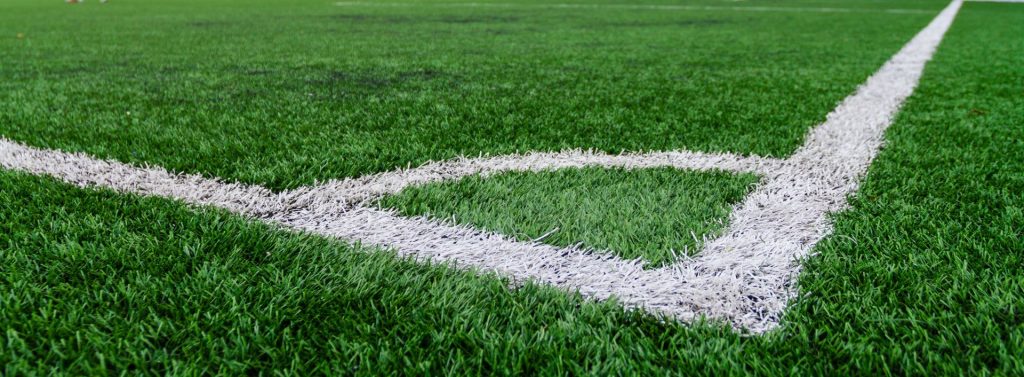
Artificial grass has revolutionised sports fields, playgrounds, and recreational areas. It offers enhanced durability, making it suitable for high-traffic areas, and improved safety features, reducing the risk of injuries during physical activities. Artificial grass remains vibrant and usable in all seasons, ensuring consistent performance and playability.
Advanced artificial grass varieties designed specifically for sports and recreation offer exceptional shock absorption, traction, and ball roll characteristics, enhancing gameplay and athlete safety. The versatility of artificial grass allows it to be customised to meet the specific requirements of different sports, providing consistent performance and playability across various activities.
To learn more about the use of artificial grass in sports & recreation and the benefits of doing so, please read this blog post.
Maintenance and Longevity of Artificial Grass:
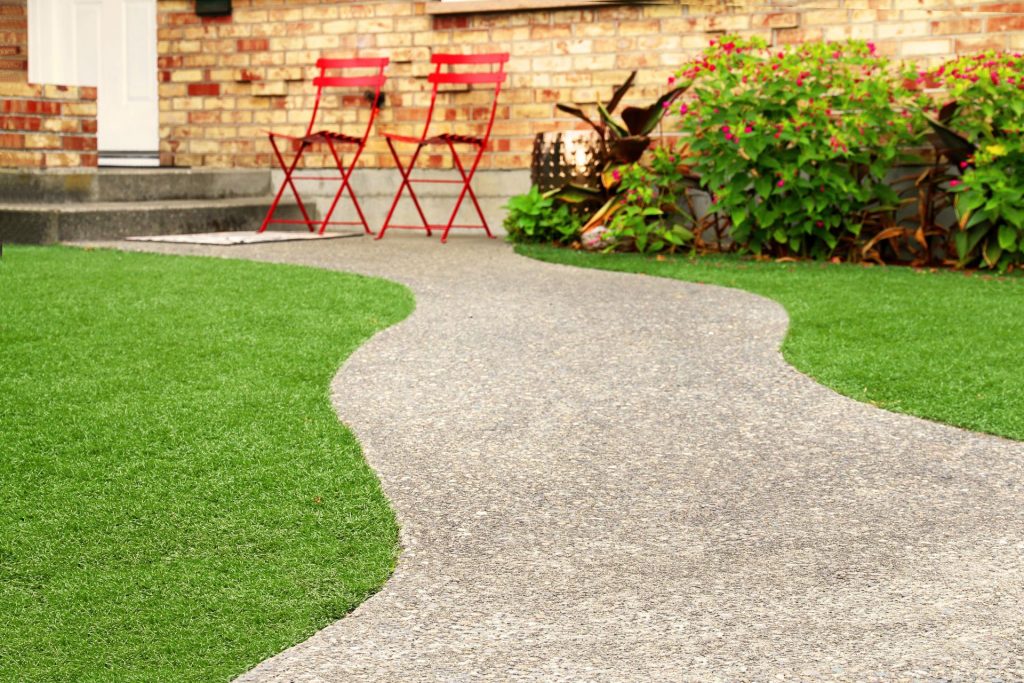
One of the key benefits of artificial grass is its low maintenance requirements compared to natural grass. Proper maintenance practices are necessary to keep your artificial grass looking its best and ensure its longevity. Regular cleaning, brushing, and raking of artificial grass prevent matting and maintain its appearance. Artificial grass also eliminates the need for mowing, watering, and reseeding, reducing maintenance efforts, and saving time and money on lawn care products and equipment. Properly maintained artificial grass can last for many years, providing a durable and visually appealing outdoor space.
Cost Considerations and Return on Investment:
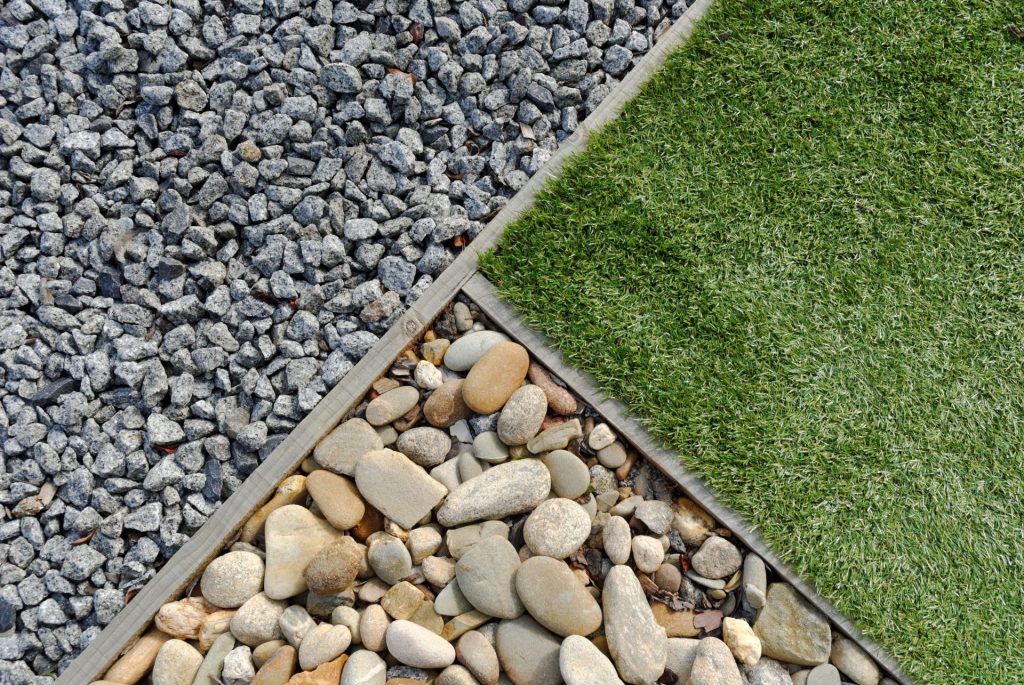
In this section, we will discuss the cost considerations associated with artificial grass installation and maintenance. While the upfront cost may be higher compared to natural grass, artificial grass provides long-term cost savings through reduced water usage, lawn care expenses, and the elimination of the need for fertilisers and pesticides. Additionally, artificial grass offers a potential return on investment in terms of monetary value and increased usability and enjoyment of your outdoor space.
Conclusion
Artificial grass has proven to be a game-changer in various domains, from residential landscaping to professional sports. The benefits of artificial grass extend beyond its visual appeal, with advantages including reduced maintenance, water conservation, enhanced durability, and improved safety. By choosing the right artificial grass for your specific needs, considering its environmental impact, exploring its applications in sports and recreation, understanding the importance of maintenance, and weighing the cost considerations, you can make an informed decision about incorporating artificial

